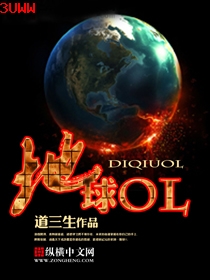wgolding.lordoftheflies-第48部分
按键盘上方向键 ← 或 → 可快速上下翻页,按键盘上的 Enter 键可回到本书目录页,按键盘上方向键 ↑ 可回到本页顶部!
————未阅读完?加入书签已便下次继续阅读!
ents and school and policemen and the law。 Roger's arm was conditioned by a civilization that knew nothing of him and was in ruins。〃 The novel delineates the gradual unconditioning of the arm and the unveiling of the heart of Roger and some of his panions。
Lord of the Flies is; of course; more than an expository disquisition on sin。 Were it only that; it would have gone virtually unnoticed。 The book is a carefully structured work of art whose organization…in terms of a series of hunts… serves to reveal with progressive clarity man's essential core。 There are six stages; six hunts; constituting the dark…
1。This article is reprinted in part by permission of The Christian Century; 80 (October 2; 1963); 1203…06。 Copyright (c) 1963 by the Christian Century Foundation。
est of voyages as each successive one takes us closer to natural man。 To trace the hunts…with pigs and boys as victims…is to feel Gelding's full impact。
As Ralph; the builder of fires and shelters; is the main constructive force on the island; Jack; the hunter; is the primary destructive force。 Hunting does of course provide food; but it also gratifies the lust for blood。 In his first confrontation with a pig; Jack fails; unable to plunge his knife into living flesh; to bear the sight of flowing blood; and unable to do so because he is not yet far enough away from the 〃taboo of the old life。〃 But under the questioning scrutiny of his panions he feels a bit ashamed of his fastidiousness; and; driving his knife into a tree trunk; he fiercely vows that the next time will be different。
And so it is。 Returning from the second hunt he proclaim; proudly that he has cut a pig's throat。 Yet he has not reached the point of savage abandonment: we learn that he 〃twitched〃 as he spoke of his achievement…an involuntary gesture expressing his horror at the deed and disclosing the tension between the old taboo and the new freedom。 His reflection upon the triumph; however; indicates that pangs of conscience must certainly fade before the glorious feeling of new and devastating power: 〃His mind was crowded with memories; memories of the knowledge that had e to them when they closed in on the struggling pig; knowledge that they had outwitted a living thing; imposed their will upon it; taken away its life like a long satisfying drink。〃
The third hunt is unsuccessful; the boar gets away。 Nonetheless it plants the seed of an atrocity previously undreamed; and it is followed by an ominous make…believe; a mock hunt in which Robert; one of the younger boys; plays pig; the others encircling him and jabbing with their spears。 The play bees frenzied with cries of 〃Kill the pig! Cut his throat! Kill the pig! Bash him in!〃 An almost overwhelming dark desire possesses the boys。 Only a fraction of the old taboo now remains; the terrified Robert emerges alive; but with a wounded rump。 What is worse; the make…believe is but the prelude to an all too real drama。
II
The fourth hunt is an electrifying success; a mayhem acplished with no twitch of conscience; no element of pretense。 The boys discover a sow 〃sunk in deep maternal bliss;〃 〃the great bladder of her belly 。 。 。 fringed with a row of piglets that slept or burrowed and squeaked。〃 What a prize! Wounded; she flees; 〃bleeding and mad〃; 〃the hunters followed; wedded to her in lust; excited by the long chase and the dropped blood。〃 The sow finally falters and in a ghastly scene Jack and Roger ecstatically consummate their desires:
Here; struck down by the heat; the sow fell and the hunters hurled themselves at her。 This dreadful eruption from an unknown world made her frantic; she squealed and bucked and the air was full of sweat and noise and blood and terror。 Roger ran round the heap; prodding with his spear whenever pigflesh appeared。 Jack was on top of the sow; stabbing downward with his knife。 Roger found a lodgment for his point and began to push till he was leaning with his whole weight。 The spear moved forward inch by inch and the terrified squealing became a high…pitched scream。 Then Jack found the throat and the hot blood spouted over his hands。 The sow collapsed under them and they were heavy and fulfilled upon her。 The butterflies still danced; preoccupied in the center of the clearing。
The fifth hunt; moving us even closer to the unbridled impulses of the human heart; is a fine amalgam of the third and fourth。 This time Simon is at the center of the hideous circle; yet the pursuit is no more make…believe than it was with the heavy…teated sow。 Simon is murdered not only without punction but with orgiastic delight。
The final and climactic abhorrence is the hunt for Ralph。 Its terror will not be celebrated here; suffice it to say that one refinement not present in the Simon episode is added …a stick Roger sharpens at both ends。 It had indeed been used for the sow; with one point piercing the earth and the other supporting the severed head; but its human use had not yet been tested on that island paradise。
Such being Mr。 Golding's art and conviction; it is little wonder that some readers have judged him offensive; revolting; depravedly sensational; utterly wicked。 He has been impelled to say that many human beings; left unrestrainedly to their own devices; will find the most natural expression of their desires to lie in human head…hunting。 Those who affirm that man is made in God's image will be given some pause; but upon reflection they will probably interpret the novel as a portrayal of the inevitable and ultimate condition of a world without grace。 Those who affirm that man is basically and inherently good…and being better…may simply find the novel a monstrous perpetuation of falsehood。
Golding's main offense; I suppose; is that he profanes what many men hold most precious: belief that the human being is essentially good and the child essentially innocent。 Yet his offense; as well as his genius; lies not in any originality of view or statement but in his startling ability to make his story real; so real that many readers can only draw back in terror。 I would strongly affirm; however; that Golding's intention is not simply to leave us in a negative state of horror。 Lard of the Flies has a tough moral and religious flavor;2 one which a study of its title helps make clear。
The term 〃lord of the flies〃 is a translation of the Hebrew word 〃Baalzebub〃 or 〃Beelzebub。〃 The Baal were the local nature gods of the early Semitic peoples。 In II Kings 1:2 Baalzebub is named as the god of Ekron。 All three Synoptic Gospels refer to Beelzebub; in Luke 11:15 he is called 〃the chief of the devils。〃 In English literature among those who refer to him are Christopher Marlowe and Robert Burton; though it is left to Milton to delineate his character at some length。 Weltering by Satan's side he is described as 〃One next himself 'Satan' in power; and next in crime; /Long after known in Palestine; and nam'd Beelzebub。〃 His subtle services to the great Adversary of mankind are well known。 To disregard the historical background of Golding's title3 or the place of the Lord of the Flies within the novel is to miss a good part of the author's intent; it is; indeed; to leave us with nothing but horror。
2。Thomas M。 Coskren; O。 P。; in 〃Is Golding Calvinistic?〃 America; 109 (July 6; 1963); 18…20; also speaks to this point at length。 The essay is reprinted on pp。 253…260 in this volume。… Eds。
3。 Golding seems to attach no particular significance to the historical Beelzebub but to regard him as simply another manifestation or creation of the human heart。 (See James Keating and William Golding; 〃The Purdue Interview;〃 p。 192 in this volume。) It is difficult to see how the 〃historical background〃 for the title enhances understanding of Golding's basic fable; although it certainly figures as a due to the theme。…Eds。
At the conclusion of the fourth hunt; after the boys have hacked the multiparous sow; they place its head on a stick as a sacrificial offering for some reputedly mysterious and awesome beast…actually a dead parachutist who had plummeted to the ground; now unrecognizable as his body rises and falls each time the wind fills the parachute and then withdraws from it。 Meanwhile Simon; whose love for his panions and desire to protect them instill a courage extraordinary; leaves them to search out the darksome creature。 He finds himself confronted by the primitive offering; by 〃the head grinning amusedly in the strange daylight; ignoring lie flies; the spilled guts; even ignoring the indignity of being spiked on a stick。〃 As he is impelled to stare at the gruesome object; it undergoes a black; unholy transfiguration; he sees no longer just a pig's head on a stick; his gaze; we are told; is 〃held by that ancient; inescapable recognition。〃 And that which is inescapably recognized by Simon is of primordial root。 Its shrewdness and devastation have long been chronicled: it is on center stage in the third chapter of Genesis; it gained the rapt attention of Hosea and Amos and the prophets who followed them。
As Simon and the Lord of the Flies continue to face each other; the nature of the latter is clearly and explicitly set forth in an imaginary conversation which turns into a dramatic monologue。 The head speaks:
〃What are you doing out here all alone? Aren't you afraid of me?〃 Simon shook。
〃There isn't anyone to help you。 Only me。 And I'm the Beast。〃 Simon's mouth labored; brought forth audible words。 〃Pig's head on a stick。〃
〃Fancy thinking the Beast was something you could hunt and kill〃 said the head。 。 。 。 〃You knew; didn't you? I'm part of you? Close; dose; close! I'm the reason why it's no go? Why things are what they are?〃
A moment later; the Beast goes on:
〃I'm warning you; I'm going to get angry。 D'you see? You're not wanted。 Understand? We are going to have
fun on this island。 Understand? We are going to have fun on this island! So don't try it on; my poor misguided boy; or else…〃
Simon found he was looking into a vast mouth。 There was blackness within; a blackness that spread。
〃…Or else;〃 said the Lord of the Flies; 〃we shall do you。 See? Jack and Roger and Maurice and Robert and Bill and Piggy and Ralph。 Do you。 See?〃
Simon was inside the mouth。 He fell down

![[网王同人]colorless wind封面](http://www.baxi2.com/cover/noimg.jpg)



